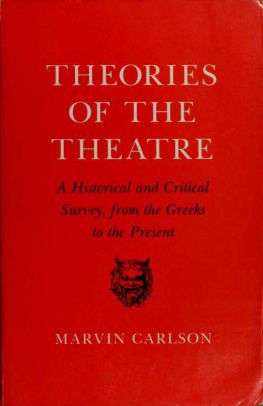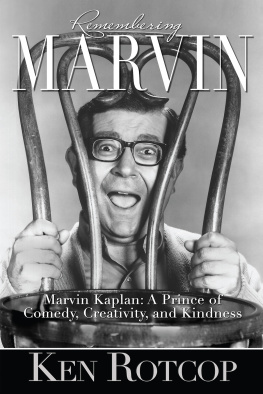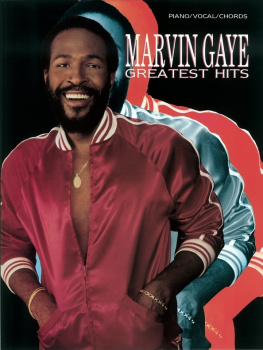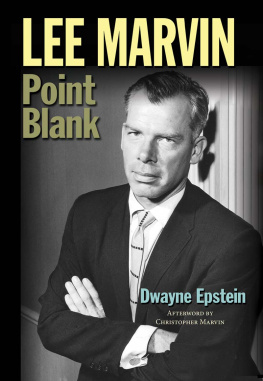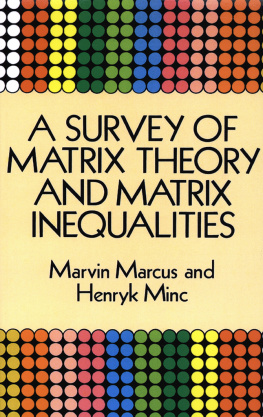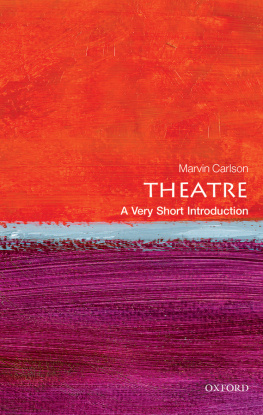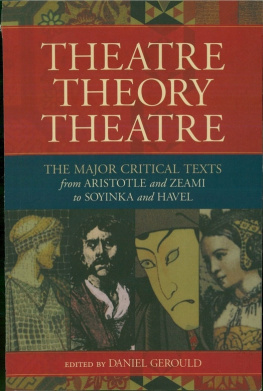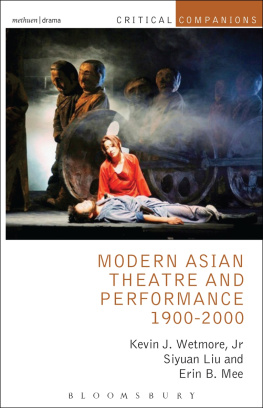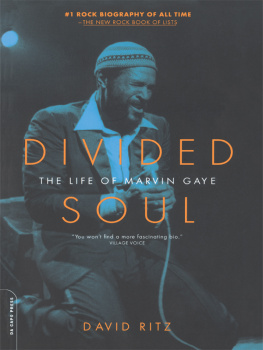This book made available by the Internet Archive.
To the many colleagues, past and present, at Cornell and Indiana, who have provided inspiration, guidance, and encouragement
\
\
Preface
Although theatre has been the subject oj speculative inquiry ever since the Greeks, there is by no means a general consensus (perhaps less today than ever) as to just what constitutes or ought to constitute the body of critical theory devoted to this art. The first and in many ways greatest difficulty in pursuing the present investigation was in laying out and attempting to maintain certain boundaries that would allow both flexibility and coherence in the material considered. Neither "theory" nor "theatre" is a term of unambiguous application, so the reader deserves some idea of what has been included and what excluded from a historical survey of Western theatrical theory.
The term "theory," then, I have taken to mean statements of general principles regarding the methods, aims, functions, and characteristics of this particular art form. It is thus separated on the one hand from aesthetics, dealing with art in general, and on the other from the criticism of particular works and reviews of particular productions. Obviously, a certain amount of overlap in these categories is unavoidable. Theatre theory rarely if ever exists in a "pure" form. Observations on theatre will be embedded in or related to observations on other arts or on all art, and so theory is involved with aesthetics. And general principles will most commonly be derived from or illustrated by examples of specific plays or productions, and so theory becomes involved with criticism and reviewing. What I have sought, then, is less a matter of pure cases than of writings in which the theoretical element is paramount, or at least is sufficiently independent from the analysis of an individual work to warrant separate discussion. It would be difficult if not impossible, for example, to discuss the history of Western theatrical theory without devoting a significant amount of space to remarks on Greek tragedy and Shakespeare, but the aim of this book is to trace
Preface
the development not of interpretations of these dramatists but of the ideawhich these interpretations illustrateof what theatre is, has been, or should be.
Another problem in defining a body of material arises from the variety of modes in which theatre theory has been developed. Professional "theatre theorists" constitute a very modest proportion indeed of those who have considered this subject, and even if we add the theoretical writings of the practitioners of the art, we still have not accounted for the greater part of the available material. Surely no other art has stimulated theoretical speculation from persons in so wide a variety of other fields of endeavor as has theatre; it comes from philosophers and theologians, rhetoricians and grammarians, musicians, painters, poets, andmore recentlysociologists and political scientists, anthropologists and cultural historians, psychologists, linguists, and mathematicians. Behind each theorist lies a whole intellectual world, and often a whole nontheatrical discipline, with concepts, vocabulary, and a substantial tradition frequently quite remote from theatre, but within which a specific theoretical statement about theatre is developed. My aim throughout has been to provide only as much nontheatrical background as I felt was absolutely essential for understanding each writer's contribution to the evolution of theatrical theory. Any less rigid program threatened to lead into the fascinating but infinite regresses of Western cultural and intellectual history.
The word "theatre" presents lesser but by no means negligible difficulties. In English, a distinction is frequently made between "drama" and "theatre," drama being the written text and theatre the process of performance. No general term covers both, as this study does, and I have opted for "theatre" partly for the pleasure of the alliteration and partly because the use of "drama" would be more likely to suggest that I was following the selective model of the two major English-language anthologies of theoretical statements on the art, both of which give only the slightest attention to production or performance theory. In recent years, "theatre" has run into problems from another direction, as a term opposed to "performance" or "spectacle," a development I deal with later in the book. In considering performance theory, I have attempted to limit my observations to those areas in which such theory overlaps with or comments significantly upon theatre. To trace performance in detaileven in the closely related fields of dance and opera, not to speak of happenings, circus, ritual, festival, and ultimately the performance elements of everyday lifewould expand this book as radically as the attempt to include generally related social and cultural material. Again, my intent has been not to avoid all reference to these related areas of
lO
Preface
interest, but rather to touch upon them only as necessary to the understanding of the evolution of theatre theory itself. All translations, unless otherwise noted, are my own.
Marvin Carlson
Bloomington, Indiana
Theories of the Theatre
Aristotle and the Greeks
The primacy of Aristotle's Poetics in theatrical theory as well as in literary theory is unchallenged. Not only is the Poetics the first significant work in the tradition, but its major concepts and lines of argument have continually influenced the development of theory throughout the centuries. Western theatrical theory essentially begins with Aristotle. Still, a few previous writings at least touched on the subject, although aside from some scattered remarks in Isocrates (436338 B.C.), the only extant significant comments on the drama before Aristotle are found in Aristophanes (c. 448-380 B.C.) and Plato (c. 427347 B.C.).
The very paucity of Greek critical pronouncements has doubtless encouraged historians of criticism to give more attention to the satirical comments of Aristophanes, in particular in The Frogs (405 B.C.), than they have given to literary parodies in later periods. Though The Frogs is a rather suspect source for such information, its particular concern, an attempt to judge between Aeschylean and Euripidean styles of tragedy, does give the play a somewhat direct relation to theory. Aristophanes' attacks on Euripides in The Acharnians and in Peace, like the more famous ones on Socrates in The Clouds, are exaggerated and often unfair, but the debate between Aeschylus and Euripides in The Frogs seems to attempt a balanced assessment. Aeschylus takes the traditional Greek position that the poet is a moral teacher and that his work must fulfill a moral purpose. Euripides takes the more modern position that art's function is the revelation of reality, aside from moral and ethical questions.

